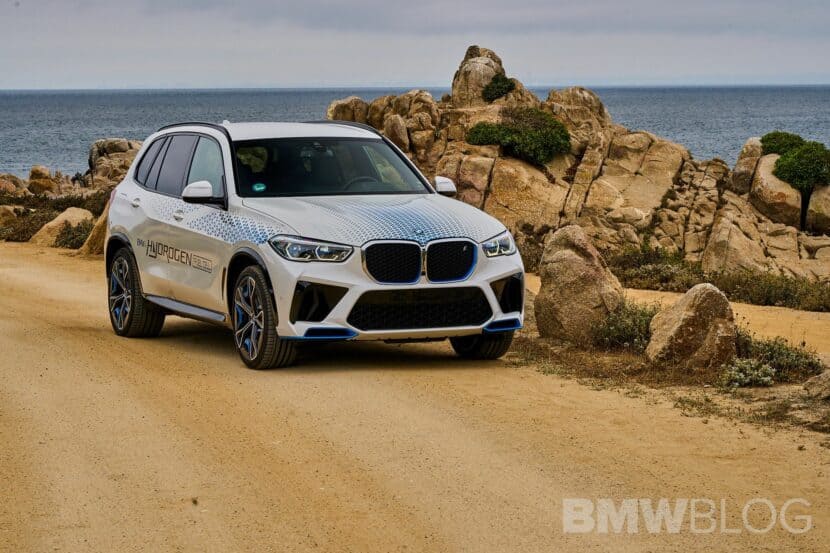BMW is one of the few automakers that believes hydrogen has a future. However, unlike Toyota and Honda, the German luxury brand doesn’t sell a hydrogen-fueled car. A decision about whether to launch a production vehicle will be made later this year. If approved, it’ll go on sale before 2030. While it’s figuring out whether to build a car or not, it’s working on the Neue Klasse platform so that it can also accommodate hydrogen tech.
Although NK is primarily intended for battery-powered electric vehicles, the all-new architecture will support hydrogen cars. BMW’s General Project Manager Hydrogen Technology has told the Australian publication CarSales that NK will be a modular platform with support for both battery cells and hydrogen tanks. Juergen Guldner said making this work “would be the ultimate [solution]” but admitted there’s “a lot of homework to do for us engineers to make hydrogen tanks to fit into that space.”
He went on to mention suppliers are already working on cylindrical hydrogen tanks that would occupy the same location as the battery pack inside a regular EV. Ideally, BMW would be able to manufacture battery and hydrogen electric cars on the same assembly line. This would lower production costs and improve the business case for hydrogen vehicles.
Guldner talked about how these cars would share a lot of the hardware to drive down costs. In addition, BMW is looking to achieve cost savings “anywhere” by working on all of the vehicle’s parts. The goal is to eventually reach price parity between an EV and the equivalent FCEV.
Although there’s great potential with the Neue Klasse, the first hydrogen BMW is likely going to be based on CLAR. The company has suggested it’ll be a larger vehicle in the upper segment, but without revealing its identity. Its latest efforts in this field have involved testing fewer than 100 iX5 prototypes across the world. While those SUVs are rear-wheel drive, the first series production BMW hydrogen car is expected to employ xDrive.
Source: CarSales






































































